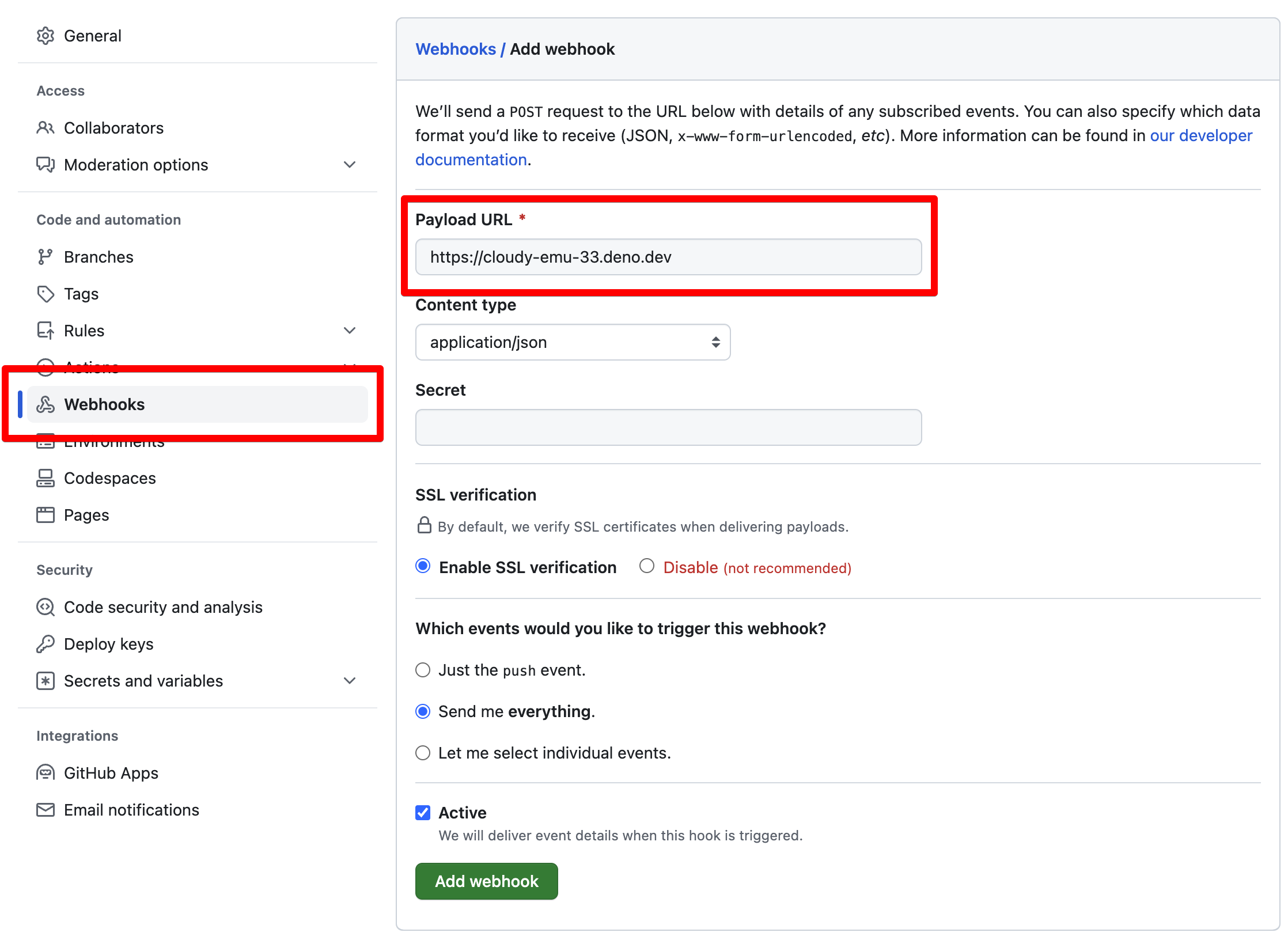Offload webhook processing to a queue
In a web application, it is often desirable to offload processing of async tasks for which a client doesn't need an immediate response to a queue. Doing so can keep your web app fast and responsive, instead of taking up valuable resources waiting for long-running processes to complete.
One instance where you might want to deploy this technique is when handling webhooks. Immediately upon receiving the webhook request from a non-human client that doesn't need a response, you can offload that work to a queue where it can be handled more efficiently.
In this tutorial, we'll show you how to execute this technique when handling webhook requests for a GitHub repo.
Try in a playground Jump to heading
✏️ Check out the this playground, which implements a GitHub repo webhook handler.
Using Deno Deploy playgrounds, you can instantly deploy your own GitHub webhook handler that uses both queues and Deno KV. We'll walk through what this code does in a moment.
Configuring GitHub webhooks for a repository Jump to heading
To try out the webhook you just launched in a playground, set up a new webhook configuration for a GitHub repository you control. You can find webhook configuration under "Settings" for your repository.

Code walkthrough Jump to heading
Our webhook handler function is relatively simple - without comments, it's only
23 lines of code total. It connects to a Deno KV database, sets up a queue
listener to process incoming messages, and sets up a simple server with
Deno.serve which responds to
incoming webhook requests.
Read along with the comments below to see what's happening at each step.
// Get a handle for a Deno KV database instance. KV is built in to the Deno
// runtime, and is available with zero config both locally and on Deno Deploy
const kv = await Deno.openKv();
// Set up a listener that will handle work that is offloaded from our server.
// In this case, it's just going to add incoming webhook payloads to a KV
// database, with a timestamp.
kv.listenQueue(async (message) => {
await kv.set(["github", Date.now()], message);
});
// This is a simple HTTP server that will handle incoming POST requests from
// GitHub webhooks.
Deno.serve(async (req: Request) => {
if (req.method === "POST") {
// GitHub sends webhook requests as POST requests to your server. You can
// configure GitHub to send JSON in the POST body, which you can then parse
// from the request object.
const payload = await req.json();
await kv.enqueue(payload);
return new Response("", { status: 200 });
} else {
// If the server is handling a GET request, this will just list out all the
// webhook events that have been recorded in our KV database.
const iter = kv.list<string>({ prefix: ["github"] });
const github = [];
for await (const res of iter) {
github.push({
timestamp: res.key[1],
payload: res.value,
});
}
return new Response(JSON.stringify(github, null, 2));
}
});